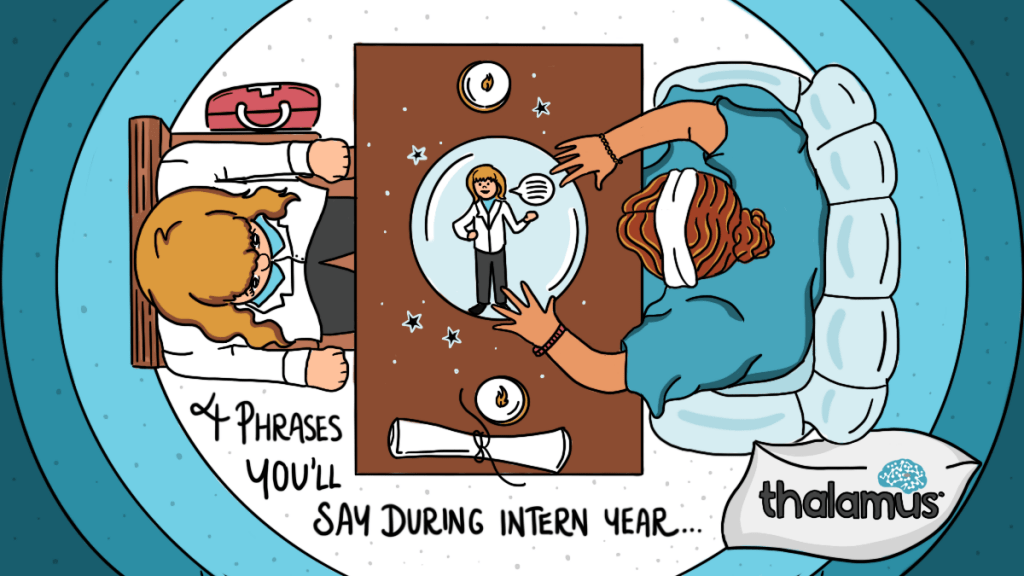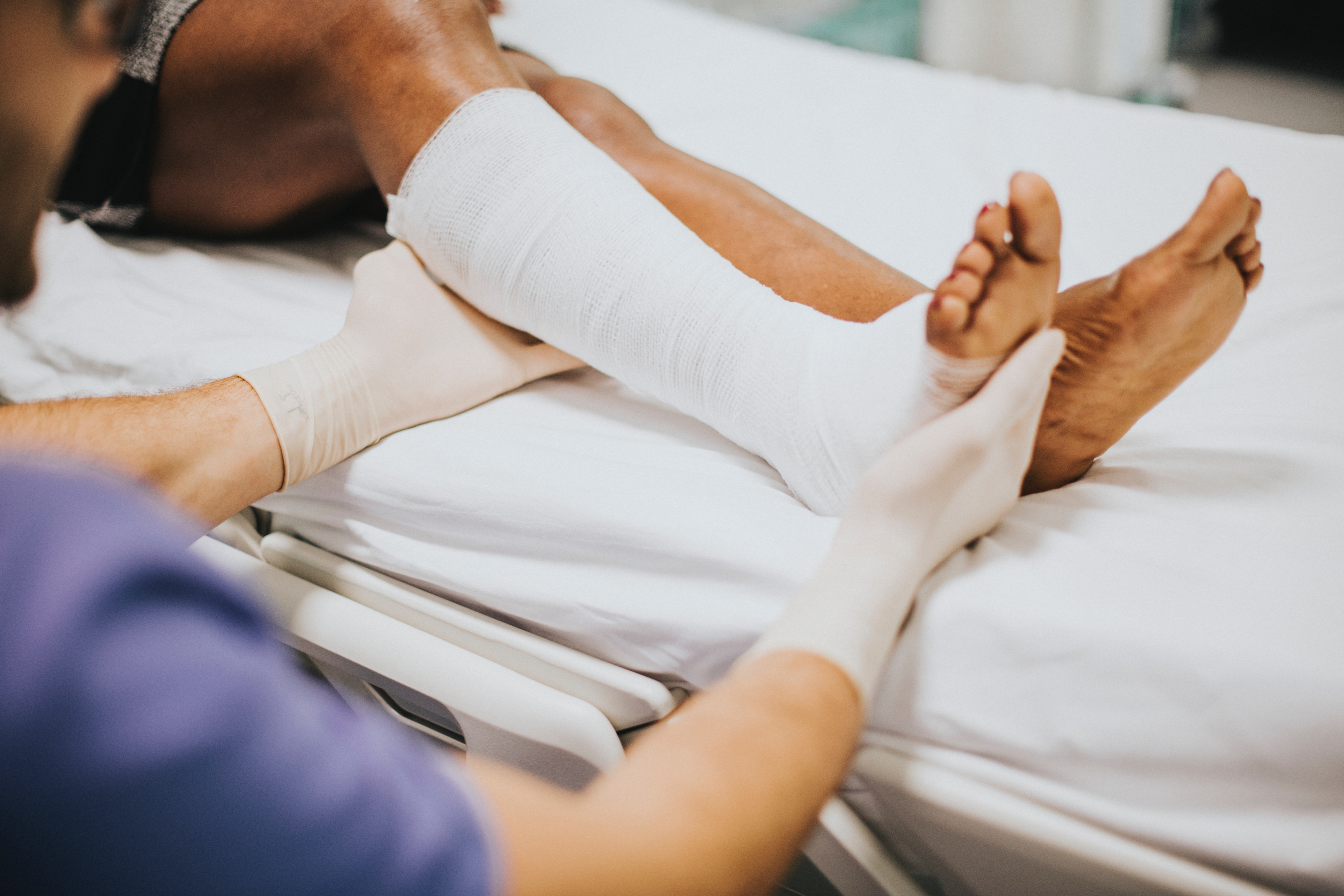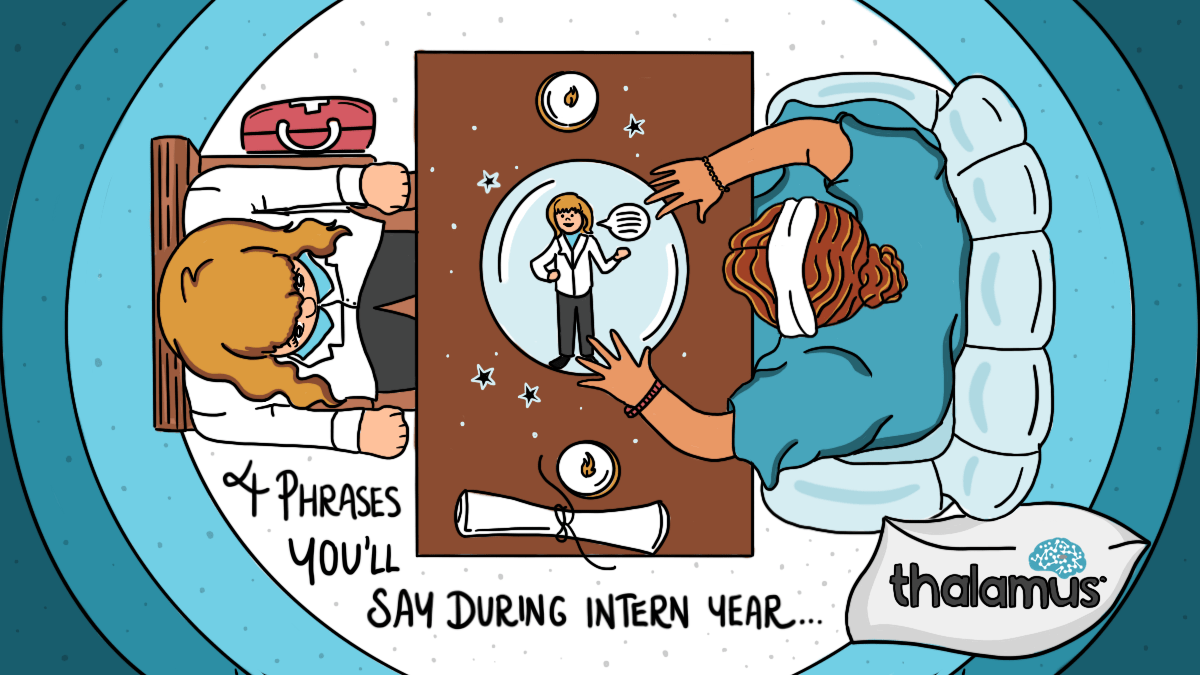
We all know that intern year is known as a rite of passage. Some people focus on the upside of the year – and may look back fondly. Others may perseverate on the other side of the spectrum. In my experience , it is a little bit of both. The following phrases are things I guarantee you will say during your intern year.
“I hate this pager”
Studies show that you will, on average, be paged as much as five times per hour. That averages out to a page every 12 minutes. And if you are overnight, usually residents are woken up every 40-80 minutes with a page.
Some of these pages are worthwhile—like those about a patient who took a turn for the worse, or those providing clarification on an order. But some of these pages are downright silly. A caffeine pill at 3am, a passing comment by a consultant in a note three days ago, and the classic impromptu family meeting in the middle of the night. My experience is supported in the literature. A handful of studies show that many pages throughout the night are for nonurgent issues and require no action by the residents.
When the pager is going off, you’ll be bothered. When it is silent, you’ll double check the batteries to see if it is really on. You can’t win during intern year.
Here are a few ways to reduce instances of that little device buzzing and beeping:
- Simply walk by the rooms and touch base with the nurses after shift change or before you begin to relax in the call room. Ask them directly if they need anything or if you could clarify anything. That way, you’ll deal with it now rather than later.
- Write your notes on a computer by the nurses who constantly page you. That way, they can walk over and chat with you instead of paging repeatedly.
- Anticipate the pages and be proactive about them. For example, if you are constantly getting paged about bowel regimens or sleeping recommendations or family meetings from certain units/nurses/patients, then request that the day team address these during the day or speak with your attending. However, when appropriate, go ahead and place an order.

“I am so tired”
During my intern year, I was more tired than what the word tired actually means. I was so tired that I wasn’t awake enough for it to bother me. To complain took energy. And energy was something I didn’t have.
Caffeine helps restore alertness and vigilance. That is a surprise to no one. But , more importantly, it does not negate the effects of sleep deprivation in the long term. This means caffeine does not help with perception, memory, tolerance, and mood.
Ever had one too many drinks? We’ve heard, and it is true, that significant fatigue is equivalent to being drunk on alcohol. A small 2012 Harvard study published in JAMA Surgery assessing fatigue found something interesting. Out of the twenty-seven orthopedic residents, it was found they were impaired a quarter of the time they were awake. In addition, about a fifth of the time, their mental effectiveness was equivalent to a blood alcohol level of 0.08%. That means they were functionally so inebriated that they could not drive legally in any state.
How did I deal with this during intern year? I was strict on my sleep habits on my days off. I would bank as many hours as I could. And, I was extremely proactive in getting to sleep every day. That means my evening routine would be very strict: put phone on night mode, turn off notifications, and take melatonin.

“Could you come look at this patient?”
My name badge said I was a physician, but deep down I knew that I didn’t have as much experience or expertise as the attending. Even the R2 above me was light years ahead of where I was. So what exactly was my role during intern year?
Once I realized this one insight, my life in the hospital became much easier. Ready? Here it is—my role was to determine if a patient was sick or not.
It sounds simple. However, only after I observed really sick patients during intern year was I able to make the distinction. That means once I experienced multiple codes, worked shifts in the ICU, saw crumping and/or septic patients in the ED bays, or learned what a patient’s deterioration looked like during nightcall—then I knew sick.
Another breakthrough I had during intern year was that my role was not to ‘solve’ all the problems. It was to gather quality information, ask pertinent questions, write discharge summaries, get along with the nurses and, finally and most importantly, notify my senior once a patient looked sick.
If you are seeing a patient and something seems off, or you yourself are tachycardic because a lot is happening, then let your senior know right away. It sounds simple , but when there are a million things to do throughout the day, and you are sleep deprived and don’t know what month it is, trust me… having a rule like this is extremely important during intern year.
If the patient turns out not to be as sick or strange as you thought, then you have a learning moment on your hands, which will hone your “spidey-sense” for the future. Ask your senior or attending why they aren’t as concerned. That’ll help you learn.

“This patient is pretty straightforward”
The really strange thing about intern year is that despite feeling incredibly tired and wanting to throw the pager out the window, somehow most interns learn an immense amount of medicine. We don’t think we are learning, but when looking back, my goodness do we gain some knowledge.
So, as I neared the end of intern year I became aware of a noticeable change in pace. I had my notes organized. I folded the rounding papers the way I liked. I had my set dot phrases in Epic. I knew the exact number of steps up to the fourth floor. I knew which attendings would create more comfortable environments on rounds.
I remember towards the end of the year calling to give signout for my patients while out biking, nowhere near a computer. Somehow, I was able to remember all their one-liners and hospital course to-date, from memory, and this provided me with a great sense of pride and accomplishment.
Similarly, I was able to more fluidly and confidently go see a consult, admit or sign out a patient, or write my notes with a thorough differential. I had an innate sense of, “This patient is pretty straightforward.” That meant that the diagnosis was easily recognizable, the management and treatment were common, and the expected difficulties could be handled.
To me, this meant that I had accumulated a significant amount of knowledge throughout intern year. And that was deeply satisfying. I don’t know how I did this—I didn’t have time to study outside the hospital. I was largely trying to keep my eyes open during afternoon lecture , using every ounce of energy I had to “stay afloat.” I did review items on UpToDate intermittently when time allowed, and I relied on my notes in Evernote. Taking everything one day at a time was a good formula for success.
How does this apply to you? As hard as it can be, try to remember how much you are learning, how much better you are becoming as a doctor, and how you are ultimately improving the lives of your patients.
Here are some intern year tips for DOs , and a review of the intern year experience by someone who’s done it. If knowing what to expect helps you to prepare , I suggest reading as many of these personal accounts and tips as possible before you start—they can be a lot more engaging than medical textbooks!
We started Thalamus with the aim of making interview season and the run-up to residency/internships easier on applicants and programs alike. Through our blog which share our stories and advice from residency and internships , we hope to make the rest of the journey smooth too!
